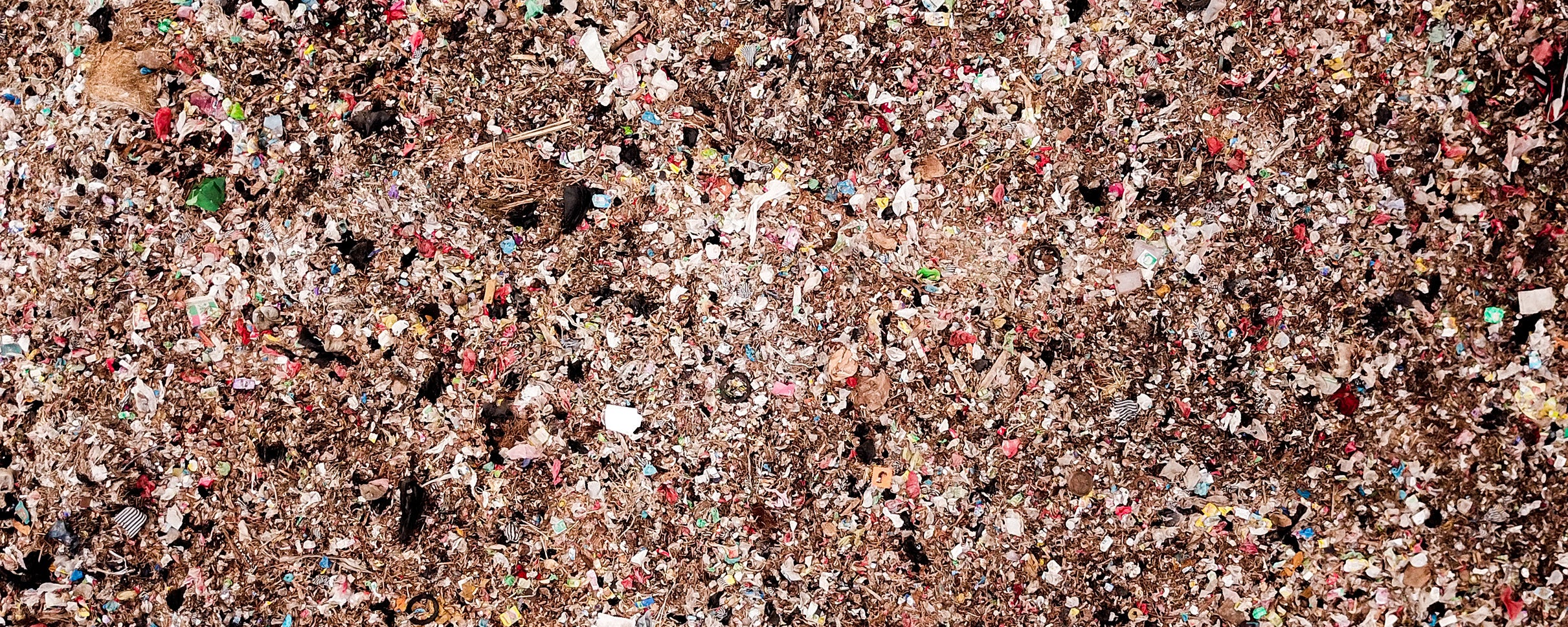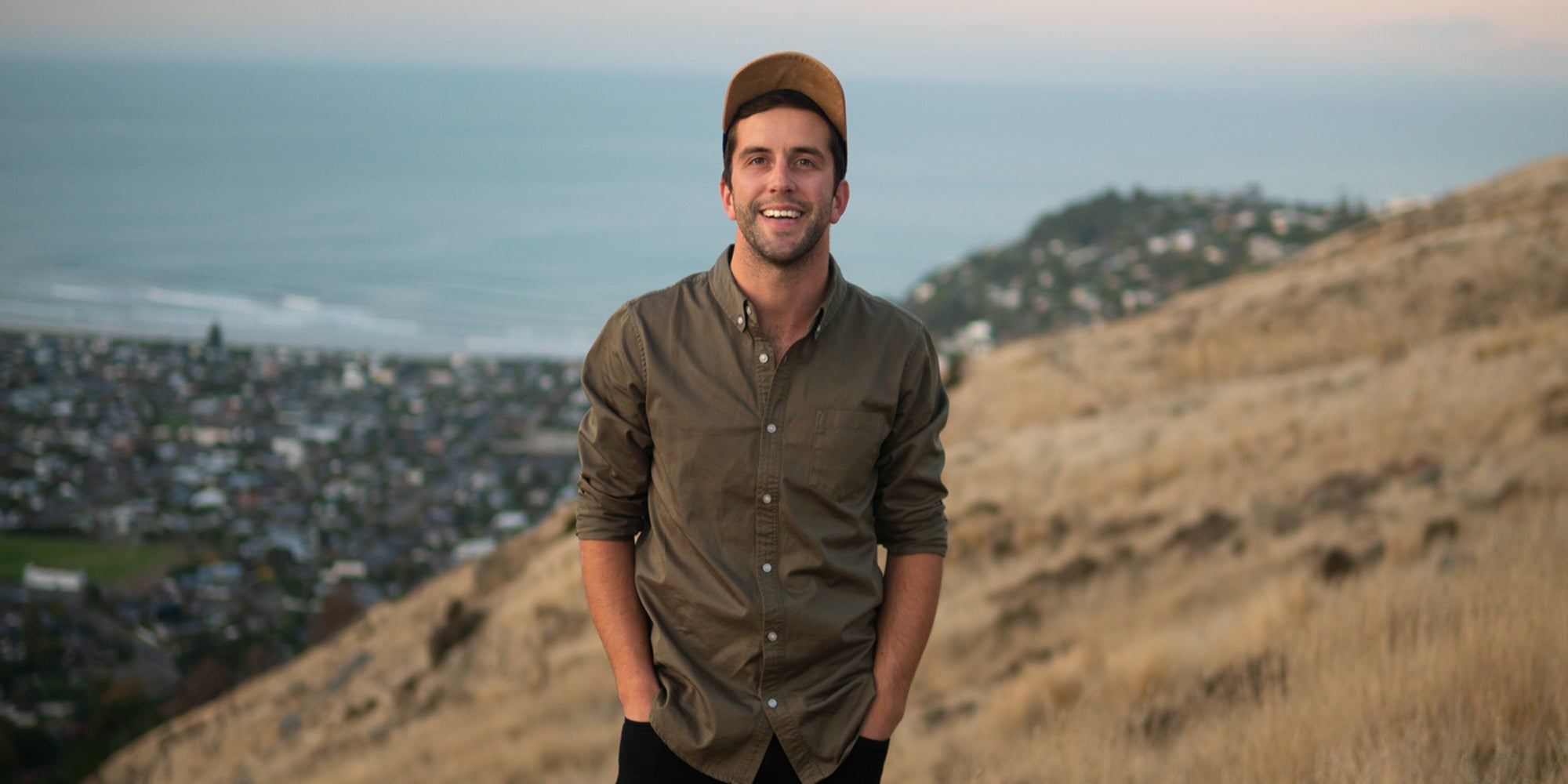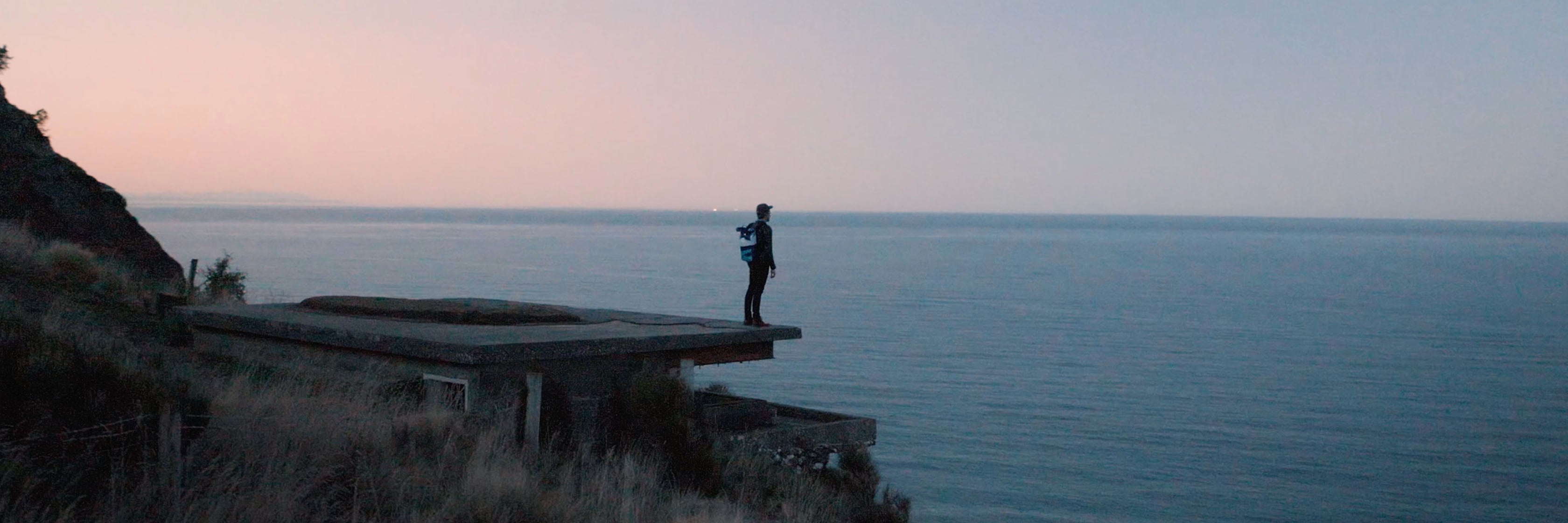We all have them in our social media feeds, and most of us are probably guilty of doing them ourselves from time to time: those postcard-perfect photos we know make people jealous. Caught at just the right moment, in the perfect light, with the stunning backdrop... they’re guaranteed to get the likes counter humming and turn friends’ faces green.
For a couple of months, Dan and I decided to base ourselves in Bali. It made sense to be there to source offcuts (we got some pearlers… more on this soon) and the lifestyle is pretty special. In case you haven’t logged into social media in the past decade, I think it’s safe to say Bali is the world’s capital for Instagram-friendly photography. Rice paddies, great beaches, beautiful people, cool temples, awesome animals, amazing food: the place truly is a gramer’s paradise. Almost.

The trucks roll in at the Suwung Landfill in Bali.
The thing people who go to Bali rarely tell you about Bali is that sometimes you have to be a bit selective in what you point at with your camera to get the perfect snap, unless your favourite pastime is spending hours on Photoshop editing out pieces of trash. Unfortunately, rubbish really is widespread on the island and the killer culprit is plastic. Dan has already covered the plastic issue in an amazing post here (it’s a must-read if you haven’t already) and we made this short doco on the plastic problem, too, but what I want to talk about is one of the places we went to film that doco: the landfill.
"The thing people who go to Bali rarely tell you about Bali is that sometimes you have to be a bit selective in what you point at with your camera."
Why do I want to talk about the landfill? Because it’s the side of Bali you’ll never see on your Instagram feed. And unfortunately, although it’s much easier to take an out of sight, out of mind approach to rubbish, it’s an eye-opening experience to see where all the stuff we throw out ends up (or in the case of Bali, a small percentage of the stuff we throw out because most of it simply ends up in the ocean).

Ever wondered where your delicious Bali burger's been? It could have been here, the Suwung Landfill on Bali.
We ended up going to Bali’s largest landfill, the Suwung Landfill near Denpasar, three times. The size of the thing is seriously impressive and I would recommend you check it out if you find yourself in Bali — it certainly gave me a greater appreciation as to just how much waste we produce as humans. We found that you can just ride straight in and take a look, although we were eventually asked to leave by security on the last visit. Just be polite and you should be okay.
The first thing you notice, long before you can see the mountain of waste, is the stench. Depending on which way the wind blows, it can honestly be quite overwhelming so approach cautiously if you have a sensitive stomach and be sure to wash your clothes after your visit because the smell has a real knack of seeping in.
"The first thing you notice, long before you can see the mountain of waste, is the stench."
Once we made it onto the waste pile, the biggest thing that surprised me was the fact that there were more than a hundred cattle grazing through the rubbish. I’m a flexitarian (AKA cop out vegetarian... I know I know) and I only rarely eat beef — but that was probably enough to put me off for life. I saw, with my own eyes, animals chewing through bits of plastic to try and get god-knows what food was inside.

A worker sifts through rubbish at the Suwung Landfill in Bali... to earn around 50 cents a kilo of plastic.
More alarming than the fact that animals are left to graze on society’s waste, is that we saw about 50 people sifting through it. Why? To take whatever recyclables they could find. We were told by our local friend Komang that these people were paid 5,000 Indonesian Rupiah per kilo for plastic, which would be sent to Java for recycling. How much is 5,000 Rupiah? Around 52 New Zealand cents. An empty 2 litre bottle (of Coke, for example) weighs 42 grams. So one kilogram of plastic is the equivalent of 24 big bottles of Coke. How much time would it take you to sift through rubbish to find that and would it be worth 50 cents to you? It’s insane.
"More alarming than the fact that animals are left to graze on society’s waste, is that we saw about 50 people sifting through it."
Despite their seemingly tragic existence, the people we saw there, like all the Indonesians we met, were smiling and laughing as they sorted through load after load of rubbish being dumped by an endless line of trucks. It blew me away and I can’t say that I was in a similarly good mood seeing the mounting pile of trash which surrounded us. One thing that got me particularly upset was seeing a girl, aged about 6 or 7, there. She wanted me to take a photo of her and her face lit up when I showed her it, but I found it hard to smile as I thought about the idea of my niece, who’s the same age, growing up in a landfill.

A young girl smiles for the camera despite growing up on a landfill.
The Suwung Landfill has come under fire recently with reports that there’s been dumping of untreated medical waste such as syringes, infusion tubes, blood bags, and medicine bottles. Partly in response to this and other bad press around the waste issue in Bali, the local government is currently turning much of the landfill into an eco-park and working to build a Waste-to-Energy plant onsite. Although these are great initiatives, neither address the root cause of the issue: we’re consuming too much crap, which is covered in too much packaging, and we’re not reusing or recycling it properly. We should see landfills around the world for what they are: one of the biggest visual symbols of our failure, as humans, to live in a way that is compatible with Earth’s resources.
"Although these are great initiatives, neither address the root cause of the issue: we’re consuming too much crap, which is covered in too much packaging, and we’re not reusing or recycling it properly."
Of course, landfills and waste are not issues limited to Bali alone. Even in developed countries, we are dumping staggering amounts of stuff to landfill. Most of it, like plastic, takes hundreds of years (or more) to break down and much of it contaminates soils or pollutes the air with Earth-warming gases as it does eventually break down. In the United States, there’s an estimated 251 million tons of consumer solid waste generated each year, but only roughly 32.5 percent of it is recycled or composted. 12.5 percent is burned and the rest, 55 percent, is buried in landfills, according to this report. Keep that in mind — that more than half of your trash is likely to end up in landfill — next time you buy something coated in plastic.

Would you like a straw with that?
There’s not much more to say about the Suwung landfill — I think the pictures are more interesting than the words — but I do really recommend you go visit it, if you get the chance to go to Bali. Here’s a Google Maps link to the location of the site. If you’re not going to Bali, go and see a landfill local to you, wherever you are in the world, and be reminded about the amount of waste we’re creating every single day. Perhaps it could be a good first date for your next Tinder match? I’m kidding, but seriously: landfills are eye-opening places and I think they should be compulsory school trips. What do you think?




Comments
Loved the blog post- I go to Suwung twice a week and it heartbreaking. You have outlined all the issues really well and instead of telling my friends and family about my experiences I will send a link to your article instead. What are your thoughts on the new garbage rules- it has caused a backload of garbage now which the infrastructure is struggling to cope with.
Strong and beautiful images. Thanks a lot!
Great post guys. Made me so sad to see all of those cows there… And it is so interesting that people are actually picking up trash to be recycle to make a living. Pretty interesting in terms of circular economy and capitalism.
Keep up the amazing work!
Kind regards,
Pawan from Zero Waste Club
Very interesting read….we all need to play a part in recycling and becoming plastic free.